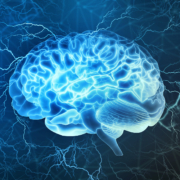Why do we sleep?
Sleep might be one of the most important functions in the brain.
On a macro level, some experts liken sleep to the process of defragmenting a hard drive at night—optimizing our cerebral “circuitry” after a busy day and preparing the mainframe computer (i.e., the brain) for tomorrow.
Dr. Ciaran Considine, associate professor of neurology at the Vanderbilt University Medical Center, said he considers sleep to be “bio-imperative,” or crucial to complex life.
“For living creatures in the animal kingdom, I think every species has some behavioral state that resembles or is an analog of sleep,” said Dr. Considine, who is a clinical neuropsychologist. “In many ways it is something core to life on Earth—not just in humans but in all animals.”
Other experts describe the importance of sleep differently.
According to Bryce Mander, associate professor of psychiatry and human behavior at the University of California Irvine Center for the Neurobiology of Learning and Memory, sleep is a fundamental process for all living organisms.
“A central fundamental function includes the process of repairing cells and the DNA in cells that are damaged by the oxidative stress associated with cells consuming oxygen and being metabolically active,” he said. “This means that sleep helps to repair cells and restore optimal cellular function on a daily basis, supporting function of all types of cells, including brain cells.”
Current hypotheses, research
There are several hypotheses about why we sleep, and all of them have at least one kernel of truth.
Some say sleep is an evolutionary byproduct to reduce exposure to environmental risks—while a daily cycle lasts 24 hours, it seems nonsensical that animals would expose themselves to risk for all 24.
Other experts say sleep is a way to flush the toxins.
In this theory, experts opine that wakefulness is toxic, and that if you’re expending energy, you’re creating metabolic waste that the body must process and eliminate during sleep.
Still other experts have promoted the theory that there is unique life maintenance that can only happen during sleep. This thinking revolves around activity in our immune systems; it suggests that we’re so busy fighting off germs and other potential threats that our bodies need a period with lower cortisol levels so our immune system can ramp up and protect us.
According to Dr. Considine, current research has shined a light on certain aspects of sleep.
One of the areas on which researchers have focused: REM sleep, which is the sleep stage when most dreams occur.
For instance, REM sleep is hypothesized to be a period when short-term information accumulated and acquired during the day is converted and integrated into long-term storage in the cerebral cortex. Dr. Considine said experts believe this information is being inserted and woven into the context of prior experience, as well—it’s more than just an isolated piece of information.
Another theory: That the brain during wakefulness is like a sponge as it gathers information, with neurons firing and forging new connections all the while.
As part of this hypothesis, experts believe the brain reaches a threshold every day, a point at which it’s no longer able to acquire information. That’s where sleep comes in as a reset, effectively squeezing out the sponge to prepare it for the acquisition of new data tomorrow.
A third area of research (here, here, and here) is a system called the glymphatic system.
This is something Dr. Considine studies closely. He described the system as a “wash cycle” for metabolic waste in the brain. As he explained it, the glymphatic system is a network of fluid-filled spaces in the brain that removes waste and regulates fluid movement. It does this by allowing cerebrospinal fluid to flow into the brain, where it mixes with interstitial fluid and carries waste out.
“This has been studied with increasing attention in the last 10 years,” he said. “The ‘wash cycle’ is ramped up during sleep and decreased during wakefulness.”
What happens without enough sleep
Based on these hypotheses about the importance of sleep, it’s no surprise that the absence of adequate sleep (six to eight hours a night for adults) can create some serious problems.
Dr. Considine said that sleep deprivation or even inadequate sleep can lead to slowed processing speed, difficulty with attention and focus, and behavioral and emotional issues.
He added that often people who do not get enough sleep experience hyper-reactivity to negative stimuli, which means they might feel more depressed or more anxious when presented with a fearful or depressing stimulus. What’s more, in certain studies, people with depleted sleep have reported the experience is pain is more intense.
Another potential complication of poor or inadequate sleep: Impact on other bodily systems, such as the cardiovascular system.
Research indicates that sleep problems can cause high blood pressure, which is a leading risk factor for heart disease and stroke. Too little sleep can cause higher levels of calcium, fat, and cholesterol in the blood, which can lead to plaque buildup in blood vessels. Finally, sleep problems can cause general inflammation, which also affects the cardiovascular system.
Mander noted that sleep is a lynchpin of neuropsychiatric conditions—poor sleep either causes these conditions or poor sleep is a feature of them. At least one recent study indicated insomnia can have deleterious effects of its own.
He added that the flipside is true, as well.
Specifically, Mander noted that recent research indicates having higher quality sleep has been shown to minimize risk for dementia and cognitive impairment. He said there is even new evidence that getting enough healthy sleep in your 50s is associated with reduced risk for dementia and brain pathology 30 years later, especially if you maintain healthy sleep patterns consistently.
The bottom line is simple: Don’t mess with sleep.
Determining healthy sleep
For experts like Dr. Considine, determining healthy sleep is more complicated than simply asking a patient how many hours they think they’ve slept the night before.
Instead, it’s a complicated matrix of three data points: the amount of sleep, the quality of sleep, and the presence of parasomnia, or rare sleep disorders that could be impacting sleep fundamentally (see sidebar).
In his clinic, one of the ways Dr. Considine ascertains this data from patients is by asking them to compare their sleep to the amount of time they spend in bed. His goal for sleep efficiency, which is the total sleep time divided by the time in bed, is about 85 percent; if a patient isn’t achieving that threshold, there’s likely another issue at play.
Often doctors can determine this data point through a simple interview. In more complex cases, providers will send patients home with a device that measures and monitors the quality of their sleep for a specific period.
In extreme cases, doctors will have patients come to a sleep lab and go through several sleep cycles essentially under observation.
Whatever the method of measuring healthy sleep, whatever the strategy for avoiding unhealthy sleep, one thing is certain: Sleep is critically important to the way we spend our waking hours every day. The more consistent and predictable we can be in our sleep patterns, the better off our bodies will be.
This article has been factchecked. For more about that process, click here.









